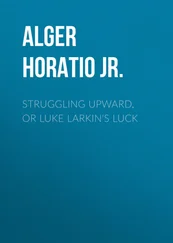Horatio Alger - Five Hundred Dollars; or, Jacob Marlowe's Secret
Здесь есть возможность читать онлайн «Horatio Alger - Five Hundred Dollars; or, Jacob Marlowe's Secret» — ознакомительный отрывок электронной книги совершенно бесплатно, а после прочтения отрывка купить полную версию. В некоторых случаях можно слушать аудио, скачать через торрент в формате fb2 и присутствует краткое содержание. Издательство: Иностранный паблик, Жанр: foreign_children, literature_19, foreign_antique, foreign_prose, на английском языке. Описание произведения, (предисловие) а так же отзывы посетителей доступны на портале библиотеки ЛибКат.
- Название:Five Hundred Dollars; or, Jacob Marlowe's Secret
- Автор:
- Издательство:Иностранный паблик
- Жанр:
- Год:неизвестен
- ISBN:нет данных
- Рейтинг книги:4 / 5. Голосов: 1
-
Избранное:Добавить в избранное
- Отзывы:
-
Ваша оценка:
- 80
- 1
- 2
- 3
- 4
- 5
Five Hundred Dollars; or, Jacob Marlowe's Secret: краткое содержание, описание и аннотация
Предлагаем к чтению аннотацию, описание, краткое содержание или предисловие (зависит от того, что написал сам автор книги «Five Hundred Dollars; or, Jacob Marlowe's Secret»). Если вы не нашли необходимую информацию о книге — напишите в комментариях, мы постараемся отыскать её.
Five Hundred Dollars; or, Jacob Marlowe's Secret — читать онлайн ознакомительный отрывок
Ниже представлен текст книги, разбитый по страницам. Система сохранения места последней прочитанной страницы, позволяет с удобством читать онлайн бесплатно книгу «Five Hundred Dollars; or, Jacob Marlowe's Secret», без необходимости каждый раз заново искать на чём Вы остановились. Поставьте закладку, и сможете в любой момент перейти на страницу, на которой закончили чтение.
Интервал:
Закладка:
"Don't the men in your factory smoke? There's a good many of them. If I could get their trade–"
"They smoke pipes for the most part," said the squire, hurriedly. "They'd find cigars too expensive."
"I meant to combine candy with cigars. That would be a help."
"They keep candy at the grocery store, Uncle Jacob."
"I see there isn't much show for me. Now if I only understood your business, you could give me something to do in the factory, Albert."
"But you don't, and, in fact, Uncle Jacob, it's too hard work for a man of your age."
"Then what would you advise me to do, Albert?" asked the old man, earnestly.
Squire Marlowe assumed a thoughtful look. In fact, he was puzzled to decide how best to get rid of the troublesome old man. To have him remain in Lakeville was not to be thought of. He would gladly have got rid of Mrs. Barton and her son, whose relationship to his family was unfortunately known, but there seemed to be no way clear to that without the expenditure of money. To have Uncle Jacob for a neighbor, in addition, would be a source of mortification, not only to himself, but even more to his wife and Percy, whose aristocratic ideas he well knew.
"I think you told me you had five hundred dollars," he said, after a pause.
"About that."
"Then I really think it would be the best thing you could do to go back to California, where you are known, and where you can doubtless obtain some humble employment which will supply your moderate wants. It won't cost you much for dress–"
"No, Albert; this coat and vest will do me for best five years longer."
"Just so! That is fortunate. So you see you've only got your board to pay."
"I might get sick," suggested Uncle Jacob, doubtfully.
"You look pretty healthy. Besides, you'll have part of your five hundred dollars left, you know."
"That's so! What a good calculator you are, Albert! Besides, if things came to the worst, there's that five hundred dollars I lent your father twenty-seven years ago. No doubt you'd pay me back, and–"
"I don't know what you refer to," said Squire Marlowe, coldly.
"Surely you haven't forgot the time when your father was so driven for money, when you were a lad of fifteen, and I let him have all I had except about fifty dollars that I kept for a rainy day."
"This is news to me, Uncle Jacob," said the squire, with a chilling frown. "You must excuse me for saying that I think you labor under a delusion."
Uncle Jacob surveyed his neighbor intently, with a gaze which disconcerted him in spite of his assurance.
"Fortunately, I am able to prove what I say," he rejoined, after a slight pause.
He drew from his pocket a wallet which bore the signs of long wear, and, opening it, deliberately drew out a folded sheet of note paper, grown yellow with age and brittle with much handling. Then, adjusting his spectacles, he added: "Here's something I'd like to read to you, Albert. It's written by your father:
My Dear Jacob:
I cannot tell you how grateful I am to you for lending me the five hundred dollars I so urgently need. I know it is very nearly, if not quite, all you possess in the world, and that you can ill spare it. It will save me from failure, and sometime I hope to repay it to you. If I cannot, I will ask my son Albert to do so when he is able. I don't want you to lose by your kindness to me.
Your affectionate brother,
Charles Marlowe."You can see the signature, Albert. You know your father's handwriting, don't you?"
Squire Marlowe reluctantly took the paper and glanced at it.
"It may be my father's writing," he said.
"May be!" repeated the old man, indignantly. "What do you mean by that?"
"I dare say it is. In fact, I remember his mentioning the matter to me before he died."
"What did he say?"
"That it was quite a favor to him, the loan, but that he repaid it within three years from the time he received it."
"What!" exclaimed Uncle Jacob, pushing his spectacles up, in his amazement. "Your father said that?"
"Yes, he did," answered Albert Marlowe, with unabashed effrontery.
"That he paid back the five hundred dollars I lent him?"
"That's what I said," repeated the squire, impatiently.
"Then it's a lie—not of my brother's, but of—somebody's. That money remains unpaid to this day."
Squire Marlowe shrugged his shoulders. "No doubt you think so," he said, "but you are growing old, and old people are forgetful. That is the most charitable view to take of your statement."
"I wouldn't have believed this, Albert," said the old man, sorrowfully. "And you a rich man, too! I don't mind the money. I can get along without it. But to be told that I am claiming what has already been repaid!"
"I don't lay it up against you," went on the squire, smoothly. "I've no doubt you have forgotten the payment of the debt, and–"
"I don't forget so easily, though I am sixty-five. Don't fear that I shall ask for it again—indeed, I haven't asked for it at all—but I shall not forget how you have treated my claim. Of course it amounts to nothing in law—it's outlawed long ago—but I only wish my poor brother were alive to disprove your words."
Even Albert Marlowe was shamed by the old man's sorrowful dignity.
"We can't agree about that, Uncle Jacob," he said; "but if ever you get very hard up, let me know, and I'll see if I can't help you—in a small way."
"You are very kind," answered the old man, "but I don't think that time will come. As you say, my wants are few, and I am still able to work. I'll go up to my room and get my valise, and then I'll go over to Mary Barton's."
"Thank Heaven! I've got rid of him," mused the squire, as from the doorway he saw Uncle Jacob walking slowly down the street. "I was afraid he'd mention that money he lent father. With twenty-seven years' interest it would amount to a good deal of money—more than I could well spare. I don't think I shall hear from it again."
"Has he gone, Albert?" asked Mrs. Marlowe, returning to the breakfast-room.
"Yes; I told him you were indisposed, and couldn't stand excitement."
"No matter what you told him, as long as we are rid of him."
CHAPTER VI
SQUIRE MARLOWE IS SURPRISED
Mrs. Barton was washing the breakfast dishes, and was alone, Bert having gone to his daily work at the shoe shop, when the outer door opened and Uncle Jacob entered the cottage, valise in hand.
"I've accepted your offer sooner than you expected, Mary," he said.
"You are heartily welcome, Uncle Jacob," responded his niece, with evident sincerity. "If you can put up with our poor accommodations after being entertained in Albert's luxurious home–"
"Don't trouble yourself about that, Mary," interrupted the old man. "Albert doesn't want me. He civilly asked me to find another stopping place."
"You don't mean it!" exclaimed Mrs. Barton indignantly.
"You see," explained Uncle Jacob, with a quiet smile, "his wife was taken suddenly indisposed—after she found I wasn't as rich as she expected."
"I hope you won't take it too much to heart, Uncle Jacob," observed Mary Barton, in a tone of solicitude.
Uncle Jacob's amused laugh reassured her.
"It is just what I expected, Mary," he said, "and I shan't grieve over it much. You ought to have seen how they all looked when I asked Albert's advice about opening a small cigar and candy store in the village. You can imagine what a mortification it would be to my high-toned nephew to have my sign out,
over a small seven by nine store, when our relationship was known."
"I hope that won't prevent your carrying out the plan, Uncle Jacob. If your gains are small, you can make your home with us and pay what you can afford."
Читать дальшеИнтервал:
Закладка:
Похожие книги на «Five Hundred Dollars; or, Jacob Marlowe's Secret»
Представляем Вашему вниманию похожие книги на «Five Hundred Dollars; or, Jacob Marlowe's Secret» списком для выбора. Мы отобрали схожую по названию и смыслу литературу в надежде предоставить читателям больше вариантов отыскать новые, интересные, ещё непрочитанные произведения.
Обсуждение, отзывы о книге «Five Hundred Dollars; or, Jacob Marlowe's Secret» и просто собственные мнения читателей. Оставьте ваши комментарии, напишите, что Вы думаете о произведении, его смысле или главных героях. Укажите что конкретно понравилось, а что нет, и почему Вы так считаете.












